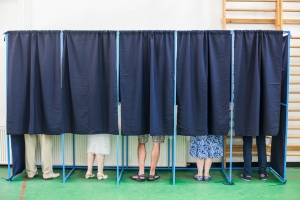Should recall elections come to NH?

“Recall” is a process to remove an elected official before his or her term ends. The recent attempt to recall Gov. Gavin Newsom of California has drawn national attention to the process. Now some state legislators want to bring recalls to New Hampshire.
The status of recalls in NH
There are four 2022 bill requests that look to add some sort of removal process for government officials in the Granite state. Current New Hampshire law does not allow for recall elections.
First, Rep. Joe Sweeney (R-Salem) is sponsoring a bill “relative to direct recall elections.” Rep. Mark Alliegro (R-Campton) and Rep. Norman Silber (R-Gilford) are sponsoring a bill “relative to the removal of election officials from office.” Rep. Silber is also sponsoring a constitutional amendment “Providing that all state court judges to be subject to recall, removal, and replacement by petition and vote of registered voters.” (Worth noting here that New Hampshire is one of just 11 states without any form of judicial elections, which ideally insulates judges from the influence of campaign donors.) Lastly, Rep. Michael Moffett (R-Loudon) is sponsoring a constitutional amendment “Providing that the general court may authorize recall elections.”
The details of these bills are not yet public, as legislators have a few weeks to work on the bill text. The devil could certainly be in the details when it comes to the recall process. The 19 U.S. states that allow recall elections vary greatly in who can be recalled, the grounds for recall, how many voters must sign a petition to start a recall, whether a successor is appointed or elected, and so on.
This year the legislators sponsoring bills related to recall are Republicans, but support for recall elections does not necessarily fall on party lines. In 2020, five Democrats sponsored a constitutional amendment to authorize recall elections, CACR 16. In 2018 a bipartisan group of legislators sponsored a similar amendment, CACR 18. Neither of those proposals mustered the three-fifths majority needed to pass a constitutional amendment in the Legislature.
Does NH need recalls?
In the past decade New Hampshire legislators have been called to resign for sharing conspiracy theories, posting anti-Semitic cartoons, starting a misogynistic discussion forum, disputing the mechanics of rape, moving out of district, falsifying a legal internship, intentionally running over ducks, sex abuse allegations, domestic violence charges, and other crimes. Unfortunately, there are far too many examples to go into further detail here. In many cases the legislators resigned before any action from the legislative Ethics Committee. That body can recommend various punishments for legislators, including the severest, expulsion.
The Legislature hasn’t approved an expulsion in over a century. The last time they came close was 2004, when Rep. John Kerns of Bedford was charged for passing a bad check with “State of New Hampshire” written on it. Kerns resigned before the House voted on his expulsion.
The Legislature also has the power to impeach the governor and other officials for “bribery, corruption, malpractice or maladministration, in office.” The House has only impeached two officials in the history of the state, both judges. Ultimately the Senate did not remove either judge from office.
The Legislature is often hesitant to expel or impeach officials because that would mean overriding the original will of voters to put that person in office.
However, with so many examples of misconduct and such reluctance among legislators to remove their colleagues, recall supporters argue that voters need power to step in between elections.
There has been particularly strong support for recall among voters who oppose Gov. Sununu’s executive actions related to the COVID-19 emergency.
On the other hand, recalls are an expensive, time-consuming process that can be abused by small but vocal minorities. In the recent example of California, Gov. Newsom easily won enough votes to stay in office, but the recall still cost the state about $300 million.
New Hampshire’s two-year terms are among the shortest in the nation; recall opponents argue that’s not too long for voters to wait to weigh in.
If you want to comment on the idea of recall elections in New Hampshire, there will be public hearings on each of the 2022 bills next year.
If you support Citizens Count's efforts to keep the public informed about these and other bills, consider making a tax-deductible donation. Citizens Count is pleased to announce that the 2nd annual NH Democracy First Challenge is on now. This matched-donation fundraising opportunity will help keep Citizens Count's free civic engagement tools available to NH citizens for years to come. You can learn more and make your gift here.











Comments
Login or register to post comments